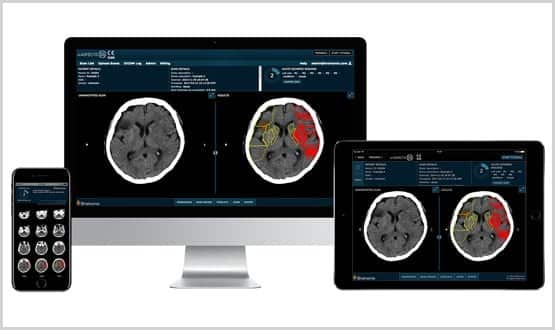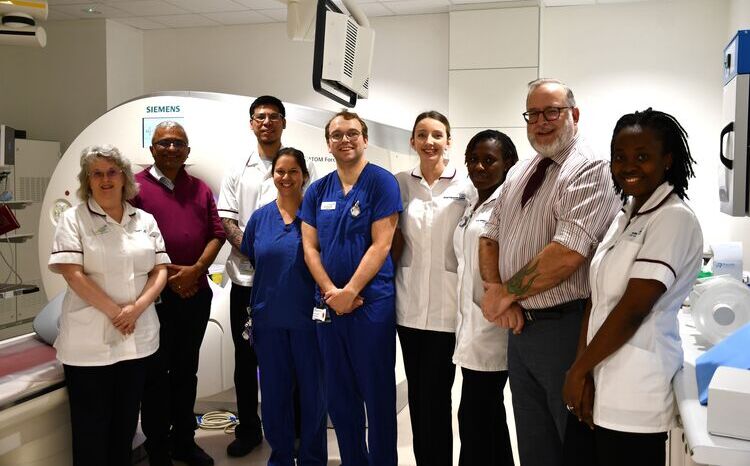Brainomix e-Lung better identifies lung fibrosis patients at risk of decline
- 2 April 2024

A research collaboration between Brainomix and AstraZeneca has shown that Brainomix’s AI-powered e-Lung software can more accurately identify lung fibrosis patients most at risk of decline.
Brainomix published a study in the peer-reviewed journal ‘American Journal of Respiratory and Critical Care Medicine’, resulting from a research collaboration with AstraZeneca, the UK’s leading biopharmaceutical company.
The results showed that Brainomix e-Lung, an AI-enabled automated CT processing software, identifies patients at risk of IPF progression, outperforming standard measures, and demonstrating e-Lung’s potential role in improving efficiency of future clinical trials.
The study was an analysis of AstraZeneca’s Phase 2 52-week clinical trial of tralokinumab in patients with Idiopathic Pulmonary Fibrosis (IPF). The patient data from the trial was processed with Brainomix’s e-Lung tool. The tool is uniquely powered by the weighted reticulovascular score (WRVS), a novel biomarker that incorporates reticular opacities and vascular structures of the lung.
Dr Peter George, lead author on the publication, senior medical director at Brainomix, and Clinical Lead for interstitial lung disease at Royal Brompton Hospital in London, said: “In this analysis of AstraZeneca’s IPF clinical trial, we have shown that from a single baseline CT scan, WRVS is able to identify patients at risk of decline in Forced Vital Capacity (FVC) over the next 52 weeks, outperforming standard measures.
“These data suggest that the e-Lung WRVS tool may allow for enrichment of clinical trials with progressive patients, could identify patients at low risk of IPF progression, might facilitate well-matched treatment arms and could reduce the size of future clinical trials.”
This study comes on the back of previously published data that was presented last year at the American Thoracic Society (ATS) meeting in Washington, D.C., which showed that WRVS was more strongly associated with transplant free survival of IPF patients than FVC alone. WRVS was also able to predict both short- and long-term outcomes of the patients, including lung function decline and survival.
Dr Kristoffer Ostridge, head of experimental medicine at AstraZeneca, commented on the value of the partnership with Brainomix: “As key components in AstraZeneca’s strategy to bring new medicines to patients faster and more effectively, data science and AI are transforming R&D.
“Our collaboration with Brainomix helped us to expand our understanding of the potential that innovative AI approaches can bring to improving the design of clinical trial for patients with interstitial lung disease.”
In February, Brainomix’s 360 AI-enabled software was endorsed by the National Institute of Health and Care Excellence (NICE) – which published guidance acknowledging the impact it can have on clinical decision-making for stroke patients.





